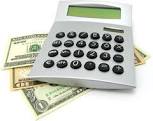 Financial experts agree that everyone should have an emergency fund. An emergency fund should be tapped into only in the event of a financial emergency, such as a job loss or medical condition.
Financial experts agree that everyone should have an emergency fund. An emergency fund should be tapped into only in the event of a financial emergency, such as a job loss or medical condition.
While you probably already know that you should have an emergency fund, it can be difficult to know just how much you should have in your emergency fun. There’s no exact formula to figure this number out, since it varies from person to person, but with a little math, you should be able to get a good idea of how much you should have in an emergency fund.
Most financial experts also recommend having at least three months of income in your emergency fund. Having six months of expenses in an emergency fund is even better.
That idea never made much sense to me, though. Why sock away three months of income,especially if you make much more than you spend? Socking away three months worth of your income can be extremely difficult for most households, particularly those that are already tight budgets. During a financial crisis, chances are you’ll also be slashing your budget to the bare bones and you won’t need three full months worth of your income – just three months of expenses.
Here are a few steps to help you decide how much to sock away for a rainy day…
1. Figure out your necessary monthly expenses.
If you don’t already have a budget, now’s the time to figure out your monthly expenses. Some monthly expenses, like rent or auto insurance, may require a fixed sum each month. Other expenses, though, may vary from month to month. It’s best to over estimate when figuring these expenses, just to be on the safe side.
Here’s a list of which expenses you’ll probably want to include:
- Mortgage payment or rent (Including taxes and insurance)
- Utilities (Natural gas, electric, water, phone, etc)
- Homeowner’s association dues
- Auto loan payment
- Auto insurance
- Fuel
- Other loan payments
- Credit card payments
- Groceries
- Toiletries and other necessities
- Prescription co-pays
- Pet supplies (Food, litter, etc)
2. Decide what should stay and what should go.
Some expenses are more important than others during a financial crisis. Mortgage payments are necessary expenses, for instance, while gym membership dues are not. Here are a few expenses that you might not necessarily need to include when trying to figure out how much should be in your emergency fund:
- Cable or satellite
- Streaming services (Netflix, Hulu, etc)
- Gym memberships
- Charitable donations
I did not include Internet on this list, because you may need access to the World Wide Web to help with finding employment in case you lose your job. Of course, you can always include these expenses to help pad your emergency fund even more, but it’s not necessary to make them a priority.
3. Pull out the abacus!
Okay, so you probably won’t use an abacus, but a calculator can come in handy during this step. Determining how much you should have in your emergency fund is actually quite easy. Just add your necessary monthly expenses up and multiply that figure by the number of months you want your emergency fund to cover. Easy peasy!
That’s the easy part; now comes the hard part – stashing it all away! Here are a few tips to help you stash cash for your emergency fund:
- Set up a dedicated emergency fund account. Keeping your emergency fund in your checking account is usually not the best idea. The money is too easy to get to and too easy to spend. Open a new savings account to keep your emergecy fund safe.
- Pay yourself first. Set up a direct deposit to have a percentage of your paycheck or fixed amount of money sent directly to your dedicated emergency fund savings account when you get paid.
- Don’t spend surprise money. When you get any unexpected or unearned money, sock it away in your emergency fund instead. This includes bonuses, rebates, lottery winnings, cash gifts, and tax refunds.
- Get a piggy bank. If you still use cash, save your change and small bills, and deposit it into your emergency fund each week or month. You might be surprised just how much it can add up!
It can seem like a daunting task to build up an emergency fund, but keep plugging away at it! Over time, your scrimping and saving will pay off. If you find yourself in a financial bind in the future, you’ll be glad you took the first step!






